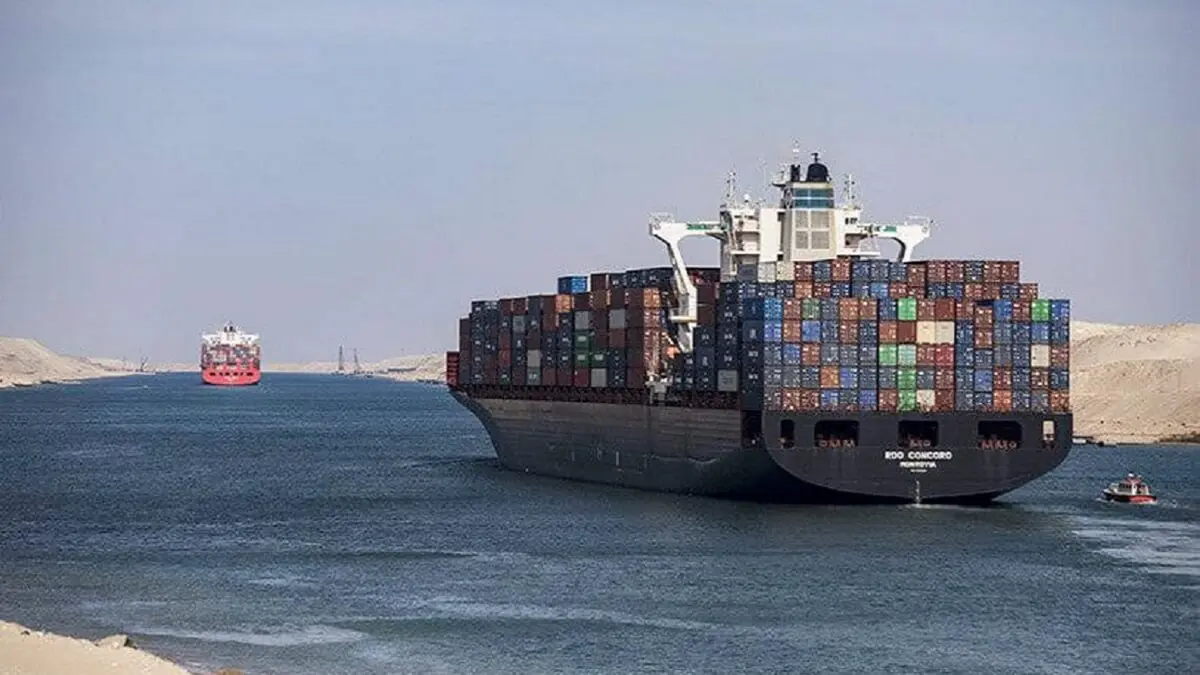Cairo's Achilles heel is inaction

If Iran strangles Egypt south of the Red Sea, Cairo can strangle Iran and the Houthis in the north.
In any case, time is not on the side of the Egyptians who, at best, find themselves trapped in a war that is affecting them and their economic capacities more and more negatively every day.
According to figures leaked by official Egyptian agencies, the economic impact of the Red Sea war on Suez Canal revenues would exceed $7 billion by the end of 2024.
For now, Egypt acts as if any attempt to prevent the Houthis from continuing the war, which theoretically pits them against Israel, would entail a greater material or human cost, so it is better to let the Houthi war in the southern Red Sea gradually degrade on its own rather than enter into a confrontation with Yemeni militants.
From this perspective, the issue becomes a numbers game, with whoever has the ability to show the most patience ultimately winning. It is, of course, possible that Westerners, mainly American and British, will achieve their goal of damaging Houthi military capabilities, especially their arsenal of ballistic missiles and drones, thus allowing the war to continue nominally, but without achieving any significant results.
The conflict has spread to a wider geographical area, witnessing the exchange of drones and missiles as the Houthis launch longer-range and faster missiles, some say hypersonic.
Thus, the Israelis have entered the scene by launching fighter jets against certain Yemeni targets, especially economic ones, causing increasing damage to the Houthis, to make them understand that it is one thing to blockade sea lanes and quite another to attack Israeli civilian and military installations.
The Israelis are likely to inflict painful blows on the Houthis at the expense of the Yemeni people regardless of the humanitarian cost, so that the Houthis can at some point stop their dangerous game.
In any case, the time factor is not in favour of the Egyptians who, at best, find themselves waiting for a war that is affecting them and their economic capacities more and more negatively every day. The Iranians benefit from the ongoing escalation by demonstrating that they still have some bargaining chips in the standoff. It is also Tehran's way of demonstrating that it is not just making threats because it can ask (or order) its Houthi allies to continue their attacks at any cost.
We do not know exactly how much each Houthi missile or drone costs. But the price will undoubtedly not exceed a few tens of millions of dollars at best (including materiel launched and facilities destroyed on the ground), compared to the billions of dollars in lost Egyptian revenue from ship and tanker fees for transiting the vital Suez Canal waterway.
It should be recalled that the Egyptians have been engaged in fierce wars with the West and Israel over Suez Canal revenues. The first of these followed the nationalisation of the canal, which sought to impose Egypt's right to the canal's revenues. The second war erupted over Israel's strategic harassment and intimidation of Egypt during the era of Gamal Abdel Nasser. The Egyptians, who regarded the Suez Canal as the goose that laid the golden egg, have always believed that war was justified to protect the canal as a vital source of revenue.
Today, the Egyptian strategic assessment is that it is ultimately better to let the Israelis carry out strikes against Yemen to calm the Houthis, or to let the Americans and British counter Houthi missiles and drones targeting ships passing through the canal, the Bab al-Mandab Strait or the Gulf of Aden. The idea is that the stockpile of Houthi missiles and drones will eventually be depleted. Some even argue that abandonment is a strategy that deserves to be tested over time, until the Houthis grow fatigued, Iran changes its mind or the Gazans come to an agreement with the Israelis.
This kind of assessment is, at best, a confirmation of Cairo's inability to come up with an adequate solution for a major regional power like Egypt, which has one of the largest and best-equipped armies in the world.
This is not to say that Egypt should be asked to consider the Houthis as an enemy to be attacked as soon as possible. However, doing nothing is unacceptable. There are many recent examples of Egypt's refusal to do anything. There is a ring of threats around Egypt, from Libya to Sudan; a ring that extends southwards from the Nile basin to the Renaissance Dam in Ethiopia and most of the Horn of Africa.
With each challenge, the Egyptian strategic situation seems to deteriorate further, with one or more parties seeing the time as opportune to put further pressure on Egypt, and even blackmail it, as long as it remains silent about hostile action.
The expansion of such ambitions around Egypt seriously erodes the country's regional position and may undermine the position of the state itself. Meanwhile, Egypt's huge army, standing idly by, has not been tested for decades.
A country like Iran, for all its military capabilities, has failed its first real test against Israel's modern military might. Israel neutralised the Iranians in a matter of days. Tehran's array of allies, including loyal states and militias, inexplicably collapsed. Worst of all was the failure of Iranian strategists to anticipate the link between the bombs that began falling on Gaza in mid-October 2023 and the collapse of Bashar al-Assad's regime in early December 2024.
This may be as serious as the failure of Egyptian strategists to tell their country's leaders that the tremors south of the Red Sea could trigger a crisis in Egypt itself.
Cairo's leaders know better than anyone that some of their enemies have been quietly nurturing this potential Egyptian crisis for years, waiting for the right moment to unleash it. The fear of a scenario in Cairo similar to the one that unfolded in Damascus is no longer just a matter for Iranian or Egyptian pundits. It is now the topic of conversation of ordinary Egyptians on the streets of Cairo as they ponder the issue over a cup of tea in a café in the Citadel.
Considering the multiple assets that Qatar and Turkey had put in place in many parts of Syria before deciding to activate them at a key moment, from the start of the offensive in Aleppo to its culmination in Damascus, there is no need to count how much money Doha and Ankara have spent and how much effort they have put into preparing for an Egyptian moment similar to the one in Syria. Cairo's appearance of weakness, real or imagined, will tempt any intruder, not just the Qataris and Turks. It is an invitation for any intruder to take a chance on Egypt.
This is an imminent danger that requires a psychological and strategic response from Cairo as soon as possible. Again, this is not a call to war, but a warning to the Houthis and their sponsors in Iran that there is no difference between cutting off Egyptians' livelihoods and trying to slit their throats, God forbid.
The hunger that pinches the stomachs of Yemenis in Sana'a is no more painful than that affecting the inhabitants of the slums around Egypt's major cities.
Egypt should send an urgent message warning Iran and the Houthis that the Suez Canal is a vital artery that is not expendable and cannot be left to outsiders.
If Iran strangles Egypt south of the Red Sea, Cairo can strangle Iran and the Houthis in the north. If one strangles Egypt under the pretext of pressuring Israel, Cairo can strangle the aggressor's sea lanes by exercising its right not to be strangled.
Egypt must respond, and its response must be clear and swift.
Haitham El Zobaidi is executive editor of Al Arab publishing house.



